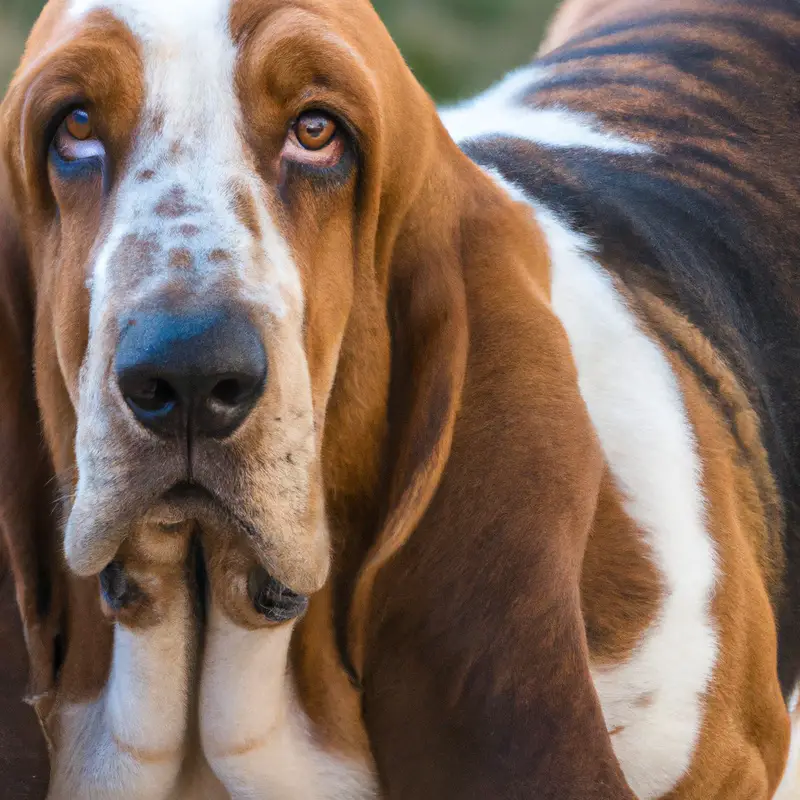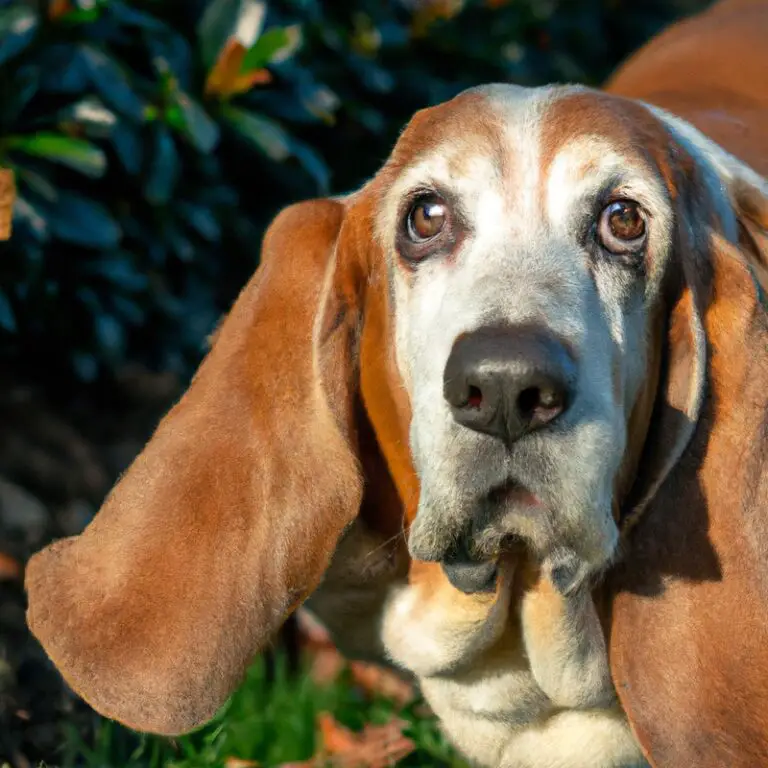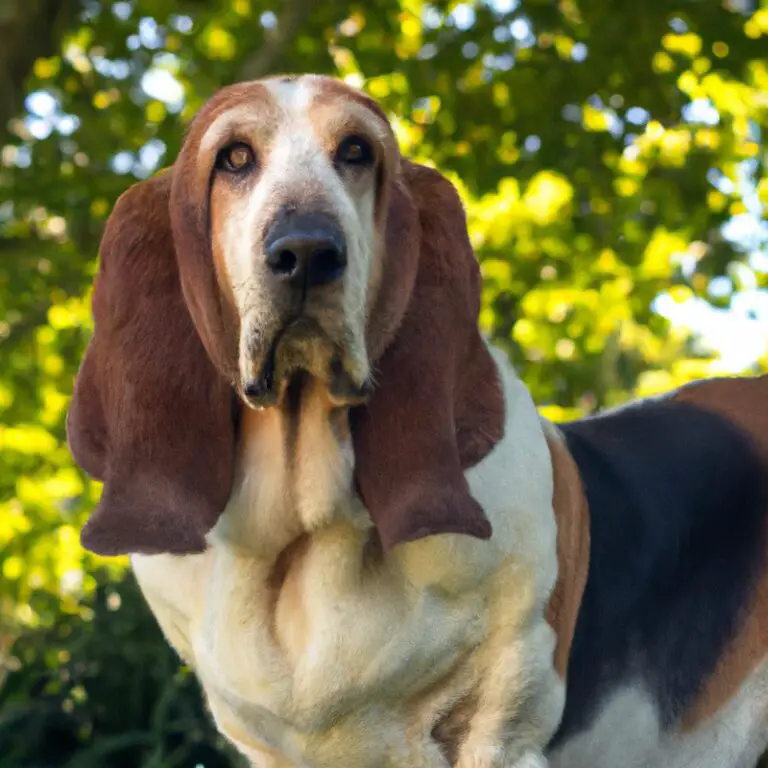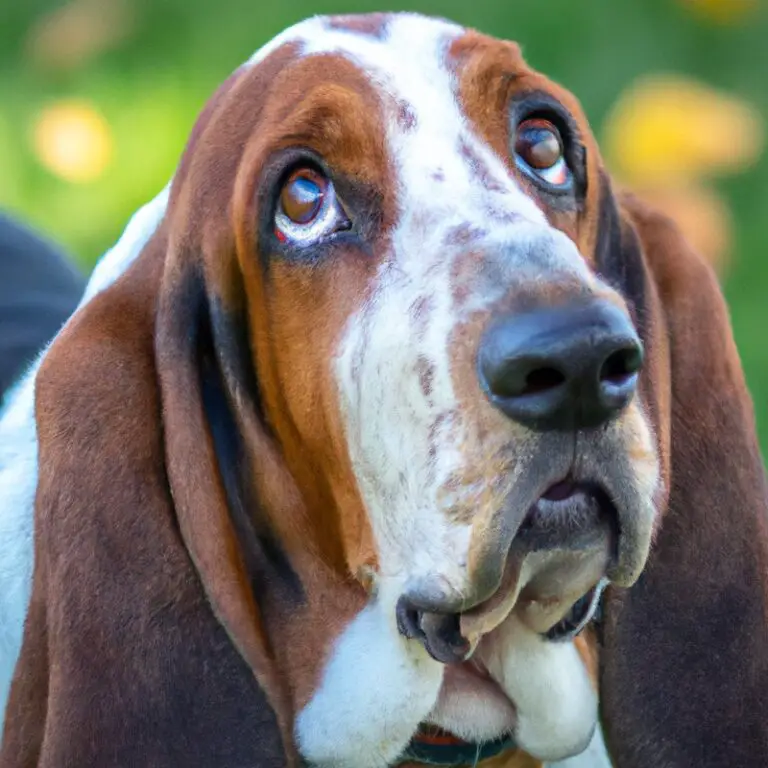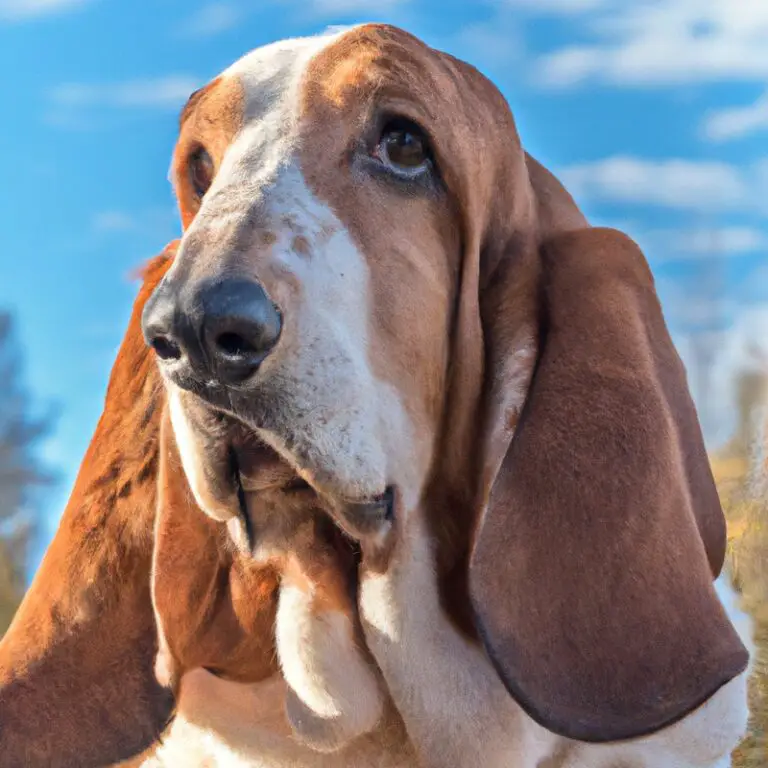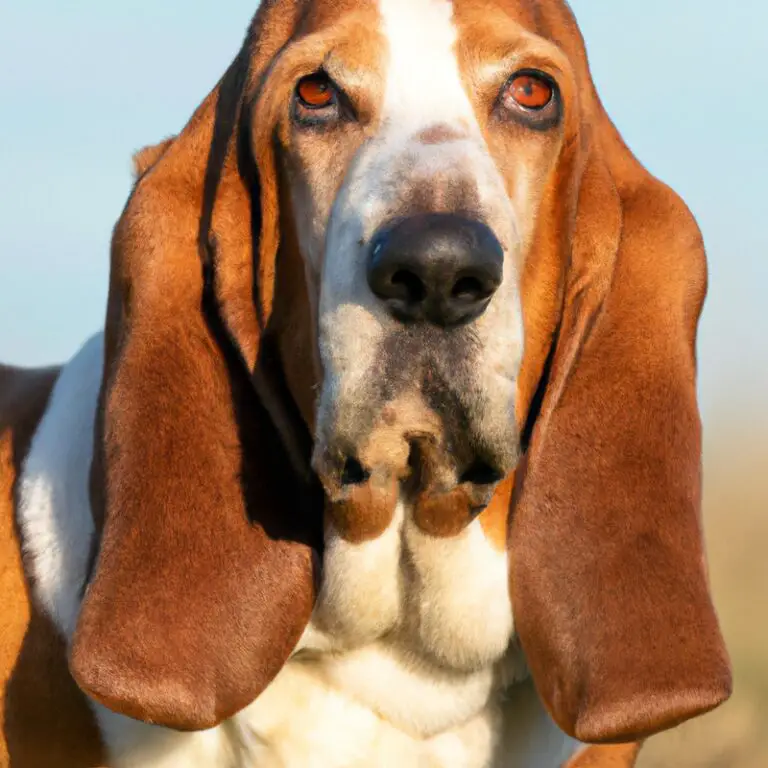How Do Basset Hounds React To Being Left Alone For An Extended Space Colonization Mission?
Key Takeaways:
- Basset Hounds may experience separation anxiety during extended periods of being left alone.
- They may exhibit destructive behavior or attempt to escape if not properly trained or stimulated.
- Maintaining a consistent routine and providing mental and physical stimulation is crucial for their well-being during prolonged absences.
- Basset Hounds may benefit from gradual conditioning to being alone and may require additional support and attention compared to other breeds.
Do Basset Hounds have what it takes to embark on an extended space colonization mission?
As an expert on canine behavior, I’ve delved into the fascinating world of these droopy-eared companions to find out.
Join me as we explore the characteristics of Basset Hounds and learn how they cope with separation anxiety.
I’ll share tips on preparing these loyal pooches for extended time alone, ensuring their well-being during space missions, and even offer strategies for reintroducing them upon return.
Buckle up, because this mission is about to take off! So, how do Basset Hounds really react when left alone for an extended space travel?
Let’s find out!
| Reaction | |
|---|---|
| Behavior | May howl, bark excessively, or become destructive due to separation anxiety |
| Emotional Stress | Prolonged periods of loneliness may lead to depression or increased anxiety levels |
| Physical Health | May experience decreased appetite, weight loss, or changes in bathroom habits |
| Training and Socialization | Insufficient socialization and training may exacerbate separation anxiety |
| Prevention and Solutions | Providing a comfortable and secure environment, mental and physical stimulation, and gradually increasing alone time can help alleviate separation anxiety |
Understanding Basset Hounds’ Behavior
Characteristics of Basset Hounds
Basset hounds are unique and adorable dogs known for their distinctive long ears and droopy eyes.
Here are some key characteristics of basset hounds:
- Size: Basset hounds are medium-sized dogs with a sturdy build and heavy bones.
- Temperament: They are generally gentle, friendly, and affectionate dogs. They enjoy being part of the family and crave attention.
- Exercise needs: Basset hounds have moderate exercise requirements. They enjoy daily walks and sniffing around but are not overly active.
- Intelligence: While they might not be the quickest learners, basset hounds are intelligent dogs with a strong sense of smell.
- Vocalization: Basset hounds are known for their unique baying and howling vocalizations, which they use to communicate and express themselves.
These are just a few characteristics that make basset hounds a beloved breed.
They can be wonderful companions, but it’s important to understand their behavior and needs to provide them with a happy and fulfilling life.
Separation Anxiety in Dogs
Separation anxiety is a common issue in dogs when they are left alone.
It can cause distress and destructive behavior.
To address separation anxiety in Basset Hounds, it’s important to gradually train them to be comfortable with alone time and establish a routine.
Providing mental stimulation and using toys and treats for distraction can also help alleviate anxiety.
Considering options like professional dog sitters or remote monitoring can ensure their well-being during extended space missions.
Recognizing signs of stress and implementing reintroduction strategies are also crucial for their long-term happiness.
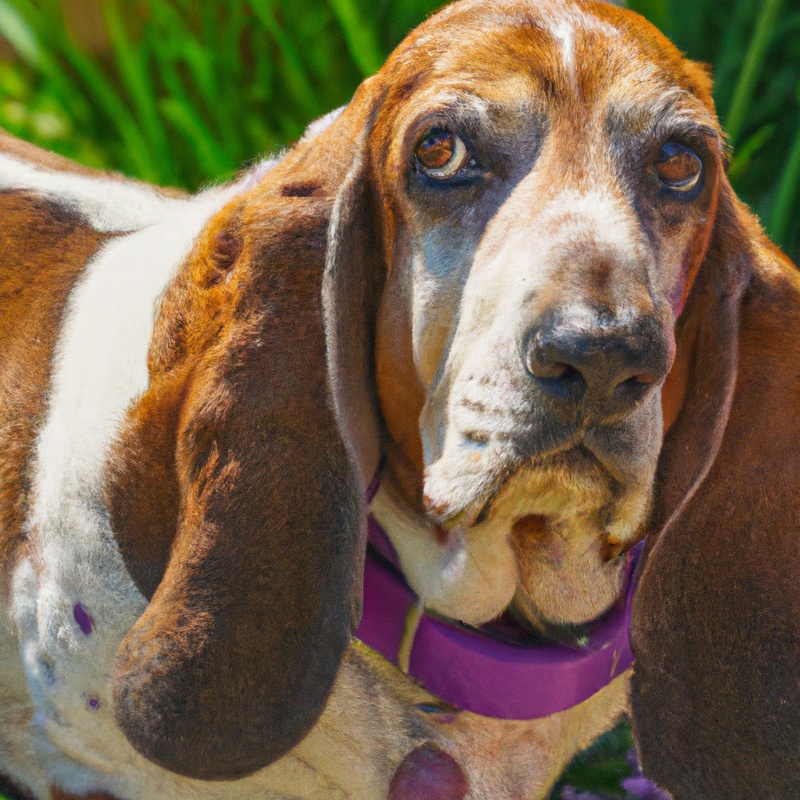
Preparing Basset Hounds for Extended Time Alone
Gradual Training for Alone Time
Training your Basset Hound for alone time is essential before any extended periods of separation. Start by gradually increasing the time they spend alone, starting with short intervals and gradually building up.
Provide them with a safe and comfortable space, such as a crate or a designated area, where they can feel secure when you are not around.
Use positive reinforcement and rewards to encourage good behavior during these training sessions. Patience and consistency are key in helping your Basset Hound adjust to being alone.
Establishing a Routine and Safe Space
Creating a routine and providing a safe space for your Basset Hound is essential when preparing them for extended time alone. Establish a consistent daily schedule for feeding, exercise, and bathroom breaks.
This will help them feel more secure and understand what to expect each day.
Create a designated area with their bed, toys, and water where they can retreat and feel safe. Make sure the space is free from hazards and provides a sense of comfort.
By establishing a routine and safe space, you can help alleviate any anxiety and ensure your Basset Hound feels secure during extended periods of time alone.
Tips for Leaving Basset Hounds Alone
Providing Mental Stimulation and Enrichment
To provide mental stimulation and enrichment for your Basset Hound when leaving them alone, consider the following:
- Puzzle toys: These interactive toys can challenge your dog mentally and keep them engaged.
- Kong toys: Kong toys stuffed with treats or peanut butter can provide mental stimulation and keep your dog occupied.
- Hide-and-seek games: Hide treats around the house for your Basset Hound to find while you’re away.
- Snuffle mats: These mats allow dogs to search for treats hidden in fabric, stimulating their sense of smell.
- Rotating toys: Keep a selection of toys and rotate them regularly to prevent boredom.
- Classical music: Playing soothing music while you’re gone can help calm your dog and provide comfort.
- Training sessions: Incorporate short training sessions before leaving to keep your dog mentally active.
Remember to consider your Basset Hound’s preferences and adapt these suggestions to suit their individual needs.
Using Toys and Treats for Distraction
Toys and treats can be effective tools for distracting your Basset Hound while you are away.
Interactive toys, such as puzzle feeders or treat-dispensing toys, can keep them engaged and mentally stimulated.
Chew toys can also help redirect their attention and provide a soothing activity.
Consider using long-lasting treats or frozen toys filled with peanut butter to keep them occupied for longer periods.
Introduce these distractions before you leave to create positive associations and help ease separation anxiety.
Remember to choose toys and treats that are safe and appropriate for your Basset Hound.
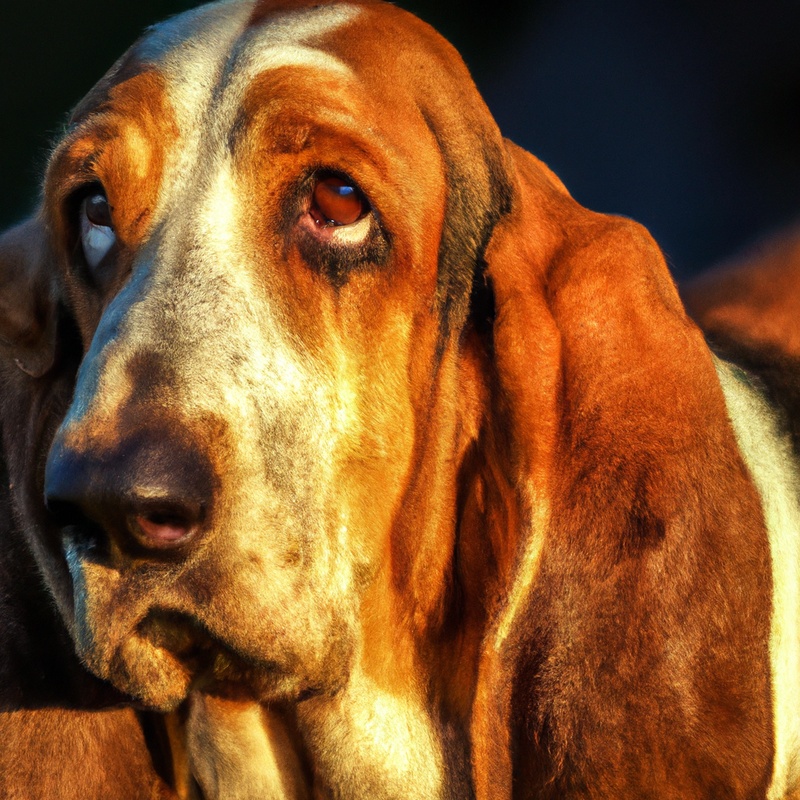
Ensuring the Well-being of Basset Hounds during Extended Space Missions
Professional Dog Sitters or Boarding Options
If you’re planning an extended space mission and need someone to care for your Basset Hound while you’re away, there are a few options to consider.
A professional dog sitter can come to your home and provide regular visits, ensuring your pup receives the care and attention they need.
Boarding facilities are also available, where your Basset Hound can stay and be looked after by experienced staff.
It’s important to research and choose a reputable and reliable option that aligns with your dog’s needs and preferences.
Monitoring Basset Hounds Remotely
Monitoring Basset Hounds remotely is essential to ensure their well-being during extended space missions.
Here are some effective methods for remote monitoring:
- Use pet cameras: Set up cameras in the designated area where your Basset Hound spends most of their time. This allows you to check in on them using your smartphone or computer.
- Utilize smart monitoring devices: Consider using smart collars or tags that track your Basset Hound’s activity levels, heart rate, and even location. These devices can provide real-time updates and alerts.
- Hire a pet sitter or use a pet boarding service: If possible, enlist the help of a professional pet sitter or choose a reliable pet boarding facility. They can provide direct care and supervision for your Basset Hound while you are away.
- Engage in video calls: Take advantage of video call platforms to interact with your Basset Hound remotely. This can help alleviate their loneliness and provide some comfort.
Remember, monitoring your Basset Hound remotely requires careful planning and a reliable setup.
By using technology and professional assistance, you can ensure their well-being even when you are far away.
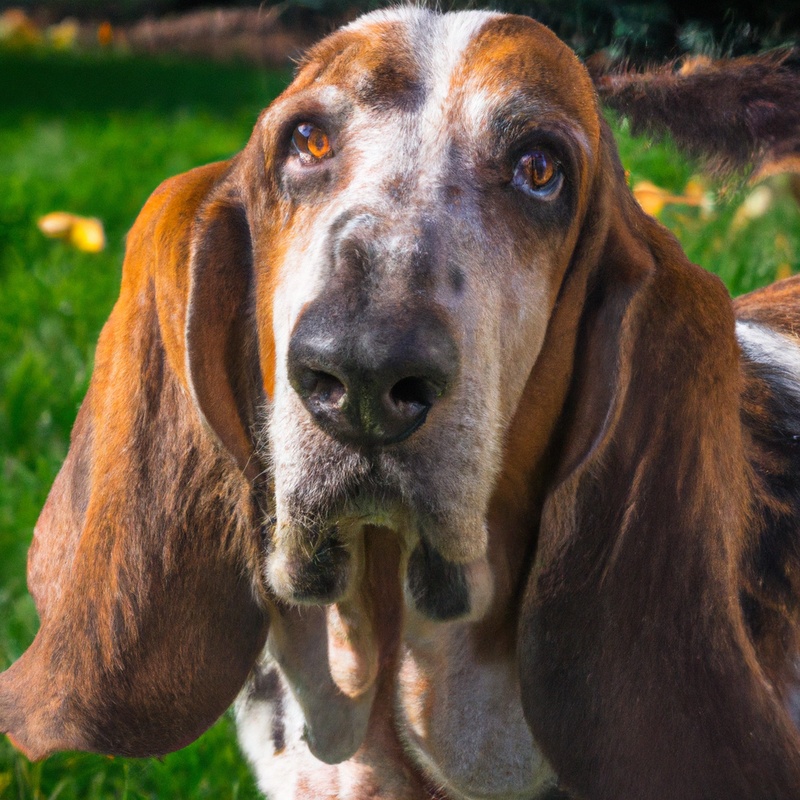
Potential Challenges during Long-term Separation
Recognizing Signs of Stress or Anxiety
Recognizing signs of stress or anxiety in your Basset Hound is important for their well-being. Look out for excessive barking, howling, or destructive behaviors when left alone.
They may also show signs of restlessness, excessive panting, or pacing.
Keep an eye on changes in appetite or weight loss, as these can be indicators of stress. Additionally, watch for trembling or hiding behavior.
If you notice these signs, it’s essential to address the underlying cause and provide support and comfort for your furry friend.
Strategies for Reintroducing Basset Hounds
To reintroduce your Basset Hound after a long separation, it’s important to take a gradual approach. Start by spending short periods of time together and gradually increase the duration.
Make sure to provide plenty of positive reinforcement and rewards to reinforce their good behavior.
Another strategy is to engage your Basset Hound in stimulating activities, such as interactive play or training sessions, to help them reorient and adjust to their surroundings. Patience and consistency are key when reintroducing your Basset Hound to ensure a smooth transition.
Final Verdict
It is important to understand the behavior of Basset Hounds when left alone for extended periods, particularly in the context of space colonization missions.
Basset Hounds are known for their affectionate and loyal nature, but they can experience separation anxiety when left alone.
To prepare them for extended time alone, gradual training, establishing routines, and creating a safe space are essential.
Providing mental stimulation, toys, and treats can help keep them occupied and distracted.
In case of long-term separation, professional dog sitters or boarding options, along with remote monitoring, can ensure their well-being.
As responsible pet owners, it is crucial to recognize signs of stress or anxiety and reintroduce our Basset Hounds carefully.
By implementing these strategies, we can help our beloved Basset Hounds thrive during extended space missions.

